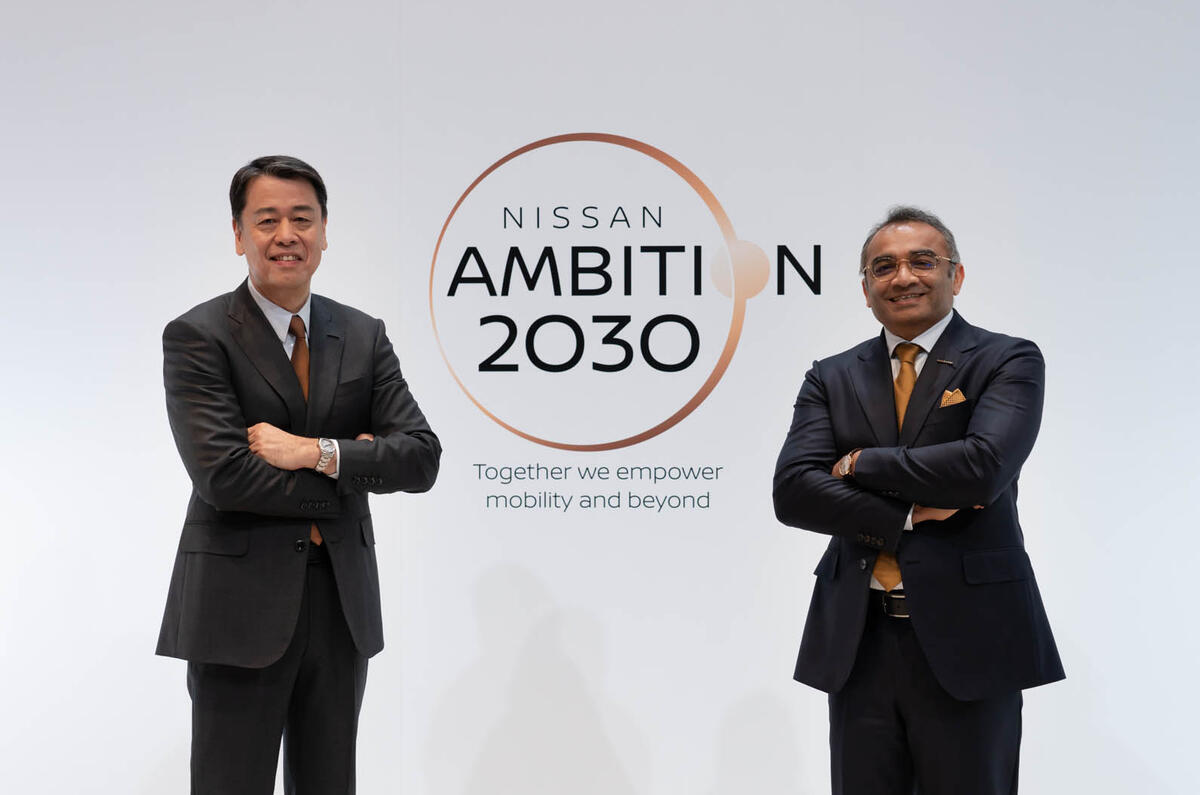Nissan will launch 23 new electrified models, including 15 pure EVs, by 2030.
The marque's new long-term product plan, presented under the Nissan Ambition 2030 banner, is centred around its sustainability objectives and aims to "empower society to build a smart ecosystem with integrated mobility".
By 2030, Nissan is aiming for electrified vehicles to account for 50% of its global sales, and by 2050 it plans to be carbon-neutral "across the lifecycle of its products".
More specifically, Nissan plans to increase its electrified vehicle sales by 40% in the US and China, 55% in its Japanese home market and 75% in Europe by 2026.
The manufacturer has committed to investing two trillion yen (£13.24bn) in electrification and new vehicle technology over the next five years, during which time it will usher in 20 new EV and electrified models.
Significantly, it has also pledged to usher in cobalt-free EV batteries by 2028, which it says will reduce costs by 65%, and plans to have EVs equipped with solid-state batteries on sale by 2028.
That would make Nissan one of the first mainstream manufacturers to commercialise solid-state batteries. BMW and Ford have hinted at plans to introduce the technology towards the end of the decade but have yet to set a deadline.
Nissan will open a pilot plant for solid-state batteries in Yokohama, Japan, in 2024, and says the technology will allow it "to expand its EV offerings across segments and offer more dynamic performance".
Charging times will be slashed by 66%, it estimates, and battery costs reduced, first to $75 (£56) per kWh and later to $65 (£49) – thereby it will "achieve cost parity between EV and gasoline vehicles in the future".
In the meantime, Nissan will ramp up its global battery production capacity to 52GWh by 2026 and 130GWh by 2030.
The firm's factory in Sunderland will play a significant role in this strategy; battery production partner Envision, which produces the components on site, recently revealed plans to boost capacity from 1.7GWh to 11GWh from 2024.
Nissan will also seek to localise manufacturing and sourcing to make EVs more competitive and accelerate its path to carbon-neutrality. It has already launched its EV36Zero strategy in the UK and will expand it to facilities in China, Japan and the US.
At the other end of the vehicle lifecycle, Nissan remains committed to the recyclability of EV batteries. It will open new battery repurposing facilities in Europe in 2022 and in the US in 2025, which it says will "support a circular economy in energy management".









Join the debate
Add your comment
So to avoid buying a complete white elephant, keep your current car going until at least 2028.
There is still quite a few obstacles in relation to the development of solid state batteries. Therefore it's unlikely that Nissan will have BEV with solid state batteries by 2028.